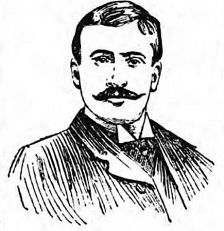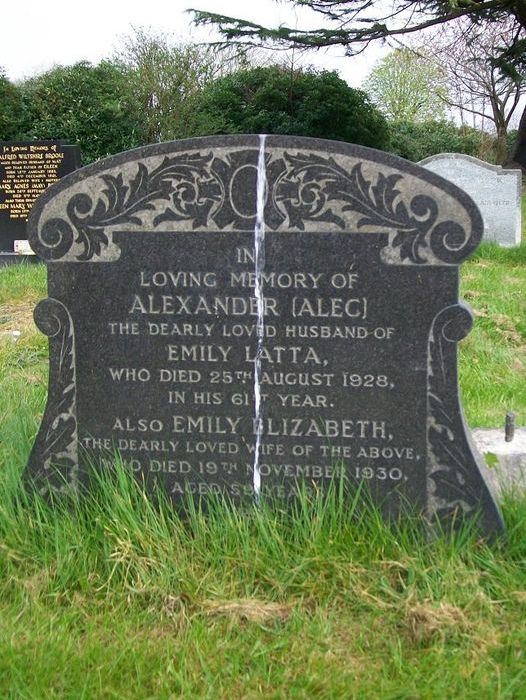Alex Latta

Alex Latta was born in 1867. Brought up on Church St. in the centre of older Dumbarton he at a young age became like his father, John, a ship-builder to trade, a skill he would never lose. John himself was a local man, a Ships Carpenter. However, Alex's mother was from away, from Laurieston by Falkirk, Alex their eldest child, although he had an older stepbrother.
And football also came to the young Alex early and he rapidly developed into a fine player but one who never turned out for Dumbarton, his home-town club and by choice, preferring, still before the 1889 merger, to stay with cross-town rivals, Dumbarton Athletic. However, it did not hold him back. In 1883 at sixteen he, another in the local mould of powerfully-built wingers, was already in his club's second eleven, it playing at St. James just round the corner from where he stayed and where now stands a retail park on Dumbarton's Glasgow Road. At eighteen he was promoted to the First Eleven, played for Dunbartonshire and, although perhaps at a lesser club, in 1888 received a first cap. That it was one of only a pair is probably purely because, when in 1889 at not quite twenty-two he was tempted South, the then rules made him ineligible for more. And by the time they were changed he was already almost thirty and on the brink of retirement.
Like so many players from Dumbarton the professional club that had drawn Latta South was Everton. In fact he would stay with Liverpool's then premier club for six and a bit seasons, making the best part of one hundred and fifty appearances. With them he would form a right-wing pair with Renton's Alex Brady and in 1891, still recorded on the census as a Shipwright, be part of the team that took the title. He would also be in the one that reached the 1893 FA Cup Final to lose by a single goal to Wolves. That was an eleven, which also included Dickie Boyle, also from Dumbarton, and Bob Kelso, another from the Renton well.
Meantime, Alex had met and in 1893 married, both in Liverpool. His bride was Emily Birston and together they over the next decade were to have seven children, three boys and four girls, three born in "The Pool" itself and the four others across the water, where the family would settle after football the story being thus.

Courtesy of Mandy Higgins
On leaving Everton in October 1896 Alex, now just short of thirty, it was ostensibly to retire to concentrate on business and from about that time the family moved out of the city into Cheshire, to Hoylake. However, he was tempted back to the game, if only for a season and it was across Stanley Park, to Liverpool reserves. But that was finally it. He now became full-time what he from was then listed as, a Yacht and Boat Builder, living after Hoylake in Tranmere and then Rock Ferry. And it there that in 1928, so just sixty-one, he passed away, Emily surviving him by just two years. Both are buried together in the Wirral's Bebington Cemetery.
Birth Locator:
1867 - 45, Church St., Dumbarton
Residence Locations:
1871-81 - 45, Church St., Dumbarton
1891 - 38, Ullswater St., Everton, Liverpool
1900 - 23, Lake Rd., Hoylake, Cheshire
1901 - 45, Church Rd., Tranmere, Birkenhead, Cheshire
1911 - 43, Church Rd., Tranmere, Birkenhead, Cheshire
1921-28 - 71, Cavendish Drive, Rock Ferry, Cheshire
Death Locator:
1928 - 71, Cavendish Drive, Rock Ferry, Cheshire
Grave Locator:
Bebington Cemetery, Bebington, Merseyside
Back to Dumbarton
to the Leven Trails,
or the SFHG Home page